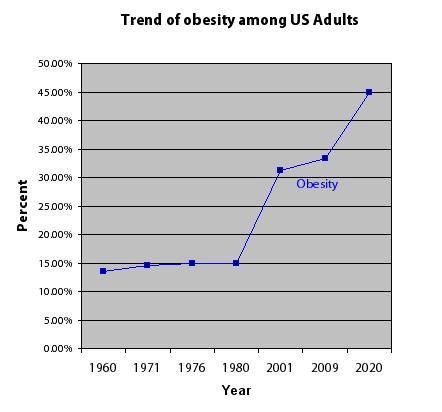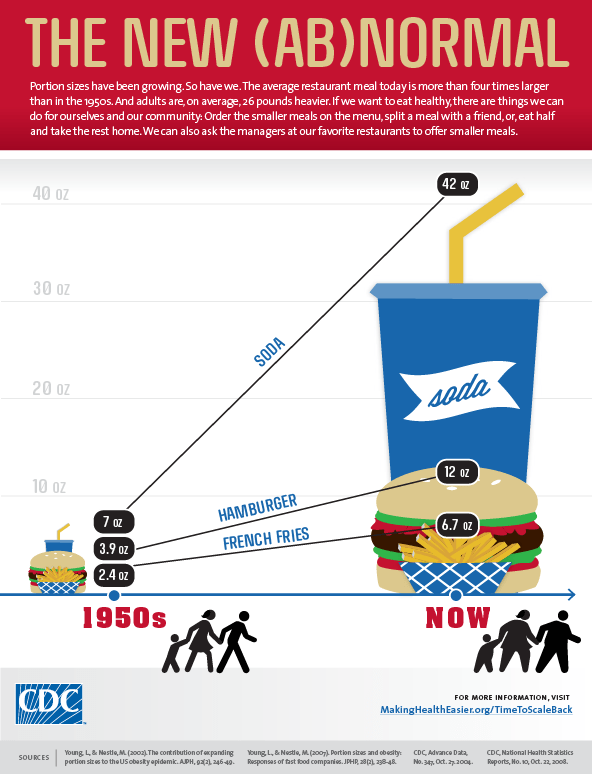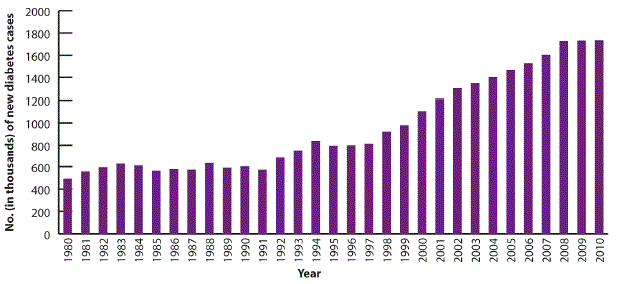This weekend the Ancestral Health Society had its annual symposium in Boston, MA. Unfortunately for me I was home (on call none the less!) and was forced to follow the proceedings via the Twitterverse. I also recently posted about how my change to the Paleo lifestyle has affected the way I approach three common chronic diseases: Hypertension, High Cholesterol, and Diabetes. Several comments I read from the AHS and that I received on my blog post have got me thinking, and I need to get a few things off my chest.
First of all, I must confess to everyone that although I run a blog site called PaleolithicMD, I am still a common variety Internist in the South of our great nation. I absolutely push Paleolithic nutrition to everyone in my practice, but it does not in any way stop me from prescribing medicines to my patients on a daily basis. I am forced to ride the fine line between strict Ancestral Medicine and Modern Day Medicine. Some may say that is a negative, I even had one comment from someone who chose not to apply to medical school because he could not deal with people who simply want a pill to fix everything. I find that unfortunate, but respect the opinion none the less.
I had several responses particularly to my stance on aggressive treatment of hypertension. Several kind readers directed to me to articles stating that the treatment of chronic hypertension with medical intervention to prevent disease is weakly supported. What concerns me is the “blanket” nature of people’s opinions about high blood pressure. I, like most practicing physicians in America and around the world routinely review the latest scientific journals pertaining to our field of specialty. We are true life long learners, one of the aspects of my job that I most enjoy. That said, arterial hypertension is a systemic disorder, with wide ranging system consequences. Chronic untreated Hypertension is/will (among others):
-The most common major risk factor for premature cardiovascular disease 1
-Directly lead to Left Ventricular Enlargement and consequently chronic systolic Congestive Heart Failure and increased incidence of ventricular arrythmias 2
-The most common and important risk factor for ischemic stroke, the incidence of which has been shown to be markedly reduced with effective BP control 3
-The most common risk factor for the development of intracerebral hemorrhage 4
-Major risk factor for chronic and end-stage renal disease 5
It is cool and sexy to take a universal stand against all medicine, it must ALL be bad for you. Not only that, EVERYTHING can be cured by changing one’s diet right! Take this tweet for instance…
Disease can be prevented, treated and cured by food. Amazing results from research & studies being presented at #AHS12. Totally blown away!
What a far ranging statement! Most common “Paleo” folk live in and out of gyms, hang out with their fit friends, and search far and wide for the cleanest restaurants to eat at. We (I include myself in this crowd) source the best farm raised protein and organically grown produce…we live in this perfect little sustainable world! I live in this world, but I also live in a very different world; one where I take care of very sick individuals. How am I to care for critically ill patients without medicine to give them, or surgery to fix things? This leads me to my two favorite quotes from today on twitter, both from Dr. Wahls.
“Superior doctors prevent disease. Mediocre doctors treat impending disease. Inferior doctors treat actual disease.”
and
“The doctor of the future will give no medicine. You guys are the doctors of the future. I salute you.”
Let’s talk about each of them in turn. The first quote is, how can I put it, an incredibly arrogant and asinine thing to say! What Dr. Wahls is doing is playing to her crowd. She figures she is in front of a group of AHS attendees who WANT to hear something like this. Why not make a ridiculous statement and get a few oohs and aahs (I wasn’t there, so I admit some speculation here!) Her statement takes a very far reaching stance that is dependent on one important thing…that ALL DISEASE is completely preventable by proper nutrition or following the right “Protocol.” Make no mistake, her story is remarkable and inspirational, but it is not grounds to advocate that all disease is preventable, and that the only “superior” doctors are those who prevent disease. I guess the ER physician who initiates the life saving care of a motorcycle victim, or the radiologist who diagnoses his injuries, or the trauma surgeon who saves his life from a ruptured spleen, or the orthopedic surgeon who repairs his broken bones, or the nephrologist who temporarily supports his kidney function through hemodialysis, or the critical care specialist who keeps him alive in the ICU until his body starts to heal itself, or the Internist who takes over his care once out of the ICU and methodically advances his care, or the Physical Medicine & Rehabilitation physician who expertly crafts his rehab program…I guess none of these doctors are “superior”…in fact, they are surely “inferior.” One can read a statement like this by Dr. Wahls and feel all nice and tingly because WE can do this, WE can fight disease through Ancestral Health alone, WHO needs inferior doctors!!! I can just hear William Wallace himself yelling “But they can’t…take away… our BACON!!!” What if that motorcycle victim is your dad, or husband, or son…what about those inferior doctors now? Is all disease preventable by eating more bacon and coconut? I won’t answer that, you can do that on your own… You may take this as simply a doctor being defensive, but that is not the case. Thousands of doctors will be away from their families tonight on call caring for your loved ones with a great deal of compassion and heart. I refuse to accept a fellow physician downgrading the status of 99% of her fellow physicians simply to get a rise out of a crowd or to advance her personal agenda. Say what you will, so will I.
So what about the “doctor of the future” comment? Amazing, talk about playing up to the crowd again with another far fetched statement. I guess the future will have no doctors nor need any doctors. All everyone will have to do is read a book on how to eat and live, and we’ll all live to be 120 years old. Seriously, who will need a doctor? Again, this is a “cool” statement to make, but it’s just ridiculous in my opinion. You may agree with her, or just hope she is right, but I can assure you she is 110% wrong. What will a doctor without medicine do for a broken bone, or a gunshot wound, or a pneumonia, or an appendicitis, or a cataract causing blindness, or a skin cancer caused by SUN exposure, or a congenital heart defect, or an abscessed tooth, or a kidney stone, or a… I hope you get my point. The thought that the only thing doctors in the future will do is prescribe you their nutritional “protocol” is terribly short sighted and misleading.
Let me explain to everyone where I live, I live in REALITY! One of the main reasons I started my blog was to stress that there is a real and valid place for both Paleolithic Nutrition AND Modern Medicine in each and every person’s life. INCLUSION rather than EXCLUSION. I agree with each of you who is saying things like “but wait, if everyone ate Paleo we wouldn’t have as much heart disease, or diabetes, or high blood pressure, or autoimmune disease, or osteoporosis, or whatever…” You know what, I think you are absolutely right, but I also believe strongly that Paleolithic Nutrition is not going to be taking the world by storm any time soon. My job as a doctor is multi-faceted.
-My primary role is to catch people early, before chronic diseases set in, and get them to buy into the idea that their actions, particularly through what they eat, can and will significantly affect their health both short and long-term. As I like to say, Real Food…Real Health.
-My secondary role is to treat those who have not followed the right lifestyle and consequently have developed any number of chronic diseases. The most exciting ones are those who are willing to re-adapt their lives and change the habits that got them in trouble in the first place. The use of medication in these patients is necessary and frequent, but is also often diminished if they can adapt to following a strict Paleo lifestyle.
-My final role is to treat those who will simply not listen to what they are doing wrong, and want to live life the way that they please. I have said it many times that I believe strongly in NOT JUDGING people in any aspect of life (no, I’m not perfect in this). What am I to do if someone is unwilling to adapt their diet? Fire them as a patient? Refuse them treatments that HAVE been proven in studies to help them live longer lives? If I run a Paleo-Only medical practice I will do two bad things: go broke, and miss out on the amazing relationships and interactions that I have with most of my patients. You see, just because someone will not give up their carbohydrates despite their terrible blood sugars does not mean that they are not a wonderful person, or that they don’t get benefit from seeing me. Likewise, just because a physician will not abandon all modern practices and preach only a Paleo lifestyle as the treatment for chronic disease does not make him or her “inferior.”
So many people advocate for social tolerance all the while berating the many American’s who for whatever reason, cannot adapt to the lifestyle we find so helpful to us. Or for that matter, look down upon the majority of doctors who simply “push pills” to the benefit of them and the all powerful and evil drug companies. What about the grandma with pneumonia, or the grandpa with a broken hip, or the mother of two whose husband left her and tried to kill herself, or the 17 year old college student with meningitis…what do I do, hang an IV of bacon fat or pureed beef liver and hope for the best?
This is not us against them, or “superior” vs “inferior” doctors, this is simply the story of humanity played out for all to see. I’ll say it again, be INCLUSIVE and not EXCLUSIVE. I absolutely love my job; I enjoy finally breaking through to the diabetic who agrees to give Paleo a try just as much as I enjoy laughing with the 86 year old who knew he was having a stroke because his cigarette kept falling out of the right side of his mouth. I admitted this gentleman to the hospital, worked him up, put him on Aspirin, and sent him home…where he picked right back up smoking. I can get mad at him, or just understand my role in his life. What did he do about all this? He laughed! The German’s didn’t kill him on the beaches at Normandy, and he’s not too concerned about what the cigarettes are doing to him at this point.
There is nothing inherently bad about you if you can’t fellow a 100% Paleo diet, nor is there anything particularly special about you simply because you can. I see you as an amazing human being with as much to offer me as I have to offer you. Guess all this makes me and Inferior doctor…and I’m very proud of my work and the influence I have on people’s lives.
Thank you. I came here tonight… and I didn’t know what to expect. I’ve seen a lot of people hating me… and I didn’t know… what to feel about that, so… I guess I didn’t like you much either. During this fight… I seen a lot of changing: the way you felt about me… and the way I felt about you. In here… there were two guys… killing each other. But I guess that’s better than million. What I’m trying to say is… if I can change… and you can change… everybody can change! -Rocky Balboa
-E
PS – Also, check out this like-minded quote from Dr. Emily Deans at her blog Evolutionary Psychiatry.
1 Established risk factors and coronary artery disease: the Framingham Study, Am J Hypertension. 1994;7(7 Pt 2):7S.
2 Prognostic implications of left ventricular hypertrophy. Vakili BA, Okin PM, Devereux RB Am Heart J. 2001;141(3):334.
3 Randomized double-blind comparison of placebo and active treatment for older patients with isolated systolic hypertension. The Systolic Hypertension in Europe (Syst-Eur) Trial Investigators. Staessen JA, Fagard R, Thijs L, Celis H, Arabidze GG, Birkenhäger WH, Bulpitt CJ, de Leeuw PW, Dollery CT, Fletcher AE, Forette F, Leonetti G, Nachev C, O’Brien ET, Rosenfeld J, Rodicio JL, Tuomilehto J, Zanchetti A Lancet. 1997;350(9080):757.
4Risk factors for cerebral hemorrhage in the era of well-controlled hypertension. Melbourne Risk Factor Study (MERFS) Group. Thrift AG, McNeil JJ, Forbes A, Donnan GA Stroke. 1996;27(11):2020.
5Elevated blood pressure and risk of end-stage renal disease in subjects without baseline kidney disease. Hsu CY, McCulloch CE, Darbinian J, Go AS, Iribarren C Arch Intern Med. 2005;165(8):923.





































